- sort orderDefault
Photo title, A → Z
Photo title, Z → A
✔ Date created, new → old
Date created, old → new
Date posted, new → old
Date posted, old → new
Visits, high → low
Random - Google Map
- map
 home / Insecta · vabzdžiai / Coleoptera · vabalai / Chrysomelidae · lapgraužiai / Crepidodera aurata · auksiškoji puošniaspragė
home / Insecta · vabzdžiai / Coleoptera · vabalai / Chrysomelidae · lapgraužiai / Crepidodera aurata · auksiškoji puošniaspragė

-
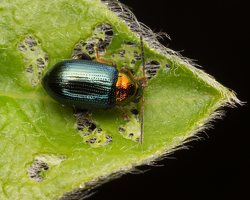 Crepidodera aurata · auksiškoji puošniaspragė
Crepidodera aurata · auksiškoji puošniaspragė
-
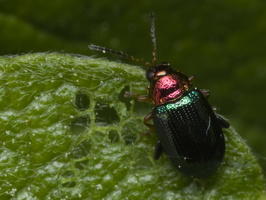 Crepidodera aurata · auksiškoji puošniaspragė
Crepidodera aurata · auksiškoji puošniaspragė
-
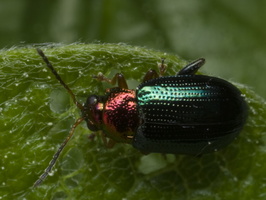 Crepidodera aurata · auksiškoji puošniaspragė
Crepidodera aurata · auksiškoji puošniaspragė
-
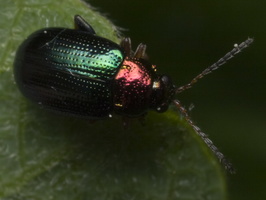 Crepidodera aurata · auksiškoji puošniaspragė
Crepidodera aurata · auksiškoji puošniaspragė
-
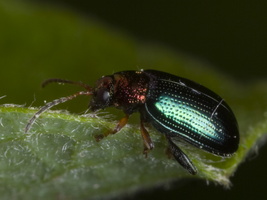 Crepidodera aurata · auksiškoji puošniaspragė
Crepidodera aurata · auksiškoji puošniaspragė
-
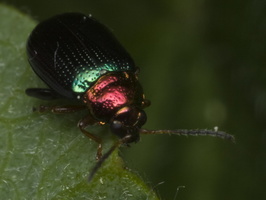 Crepidodera aurata · auksiškoji puošniaspragė
Crepidodera aurata · auksiškoji puošniaspragė
Crepidodera aurata · auksiškoji puošniaspragė
- Chalcoides aurata
- willow flea beetle
- Weiden-Erdfloh
- kultakirppa
- auksiškoji puošniaspragė, auksiškoji spragė
- gouden wilgenaardvlo
- łozówka złotawa
- tvåfärgad videjordloppa
- ukbeetles.co.uk/crepidodera-aurata
- naturespot.org.uk/species/willow-flea-beetle
- gbif.org/species/4462742
It can be found in Palearctic realm and to the east of Korea. Adult species length is 2.5–3.5 mm, and is oval. Head and pronotum brilliant metallic blue or green with bronze, copper or violet overtones, elytra blue or green without overtones, legs pale yellow or brown with the hind femora dark brown or black although rarely the legs are entirely dark, antennae pale at the base and gradually darkened to the apices, this is very variable and they may be extensively pale or dark. Elytra broadest behind the middle, with rounded shoulders and a continuously-curved apical margin, with complete and strongly-punctured striae and very finely punctured interstices. Hind femora greatly enlarged.
Host plants include various willows (Salix) and poplars (Populus) but during the summer they may also be found on a wider range of trees including Oak, Alder, Ash and Hazel. Adults hibernate under barks or debris, and can be found under logs and mud. The adults live for 8–9 months. They are active during spring, particularly in May, and can be found on the ground where the tree have started throwing its buds. From May to June the species can be visibly seen on poplars and willows, whose leaves they feed on, by the round holes left as a result. Starting from June to August the beetles start mating. The females lay their eggs on the recently fed-on leaves of plants. The eggs colour is yellow, and are spindle-like. The larva hatches in summer, with the size of 5–6 mm in length, black coloured, and in resemblance of a slug. The larva feeds on the same plants that their previous generation used to feed on. The larva becomes adult within approximately three months, and the cycle continues from that point.
2,5 - 3,7 mm. Priešnugarėlė auksiška arba žaliai auksiška, kartais vario raudonumo, antsparniai žydri ar mėlynai žali, metalo blizgesio. Vabalai ir lervos gyvena ant įvairių gluosnių bei tuopų. Lietuvoje labai dažna.